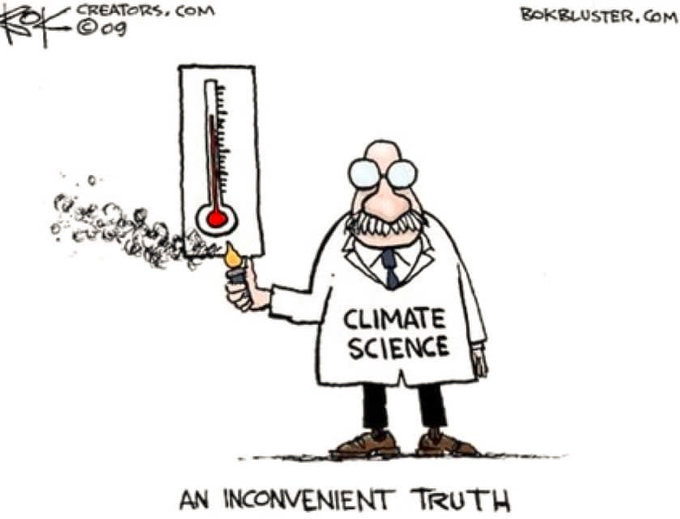OPINION
I was delighted, recently, to find the complete series of In Search Of… free on YouTube.
For those who don’t remember, In Search Of… is a slice of classic ’70s weirdness, pre-New Age, with Leonard Nimoy totes seriously chasing every bit of fruitcakery, from the Loch Ness monster, to the Bermuda Triangle, to ancient aliens.
Not to mention “The Coming Ice Age”.
A sober reminder that, not so long ago, it was global cooling that climate scientists were loudly warning us was only 10 years away. Interestingly, the show featured a name who was soon to do a complete u-turn and become (in)famous in the history of ‘climate science’: Stephen Schneider.
It was Schneider who first coined the concept of so-called ‘post-normal science’, where, in his own words, policy influence trumped rigorous scientific truth-telling. Thus was cemented the official mission statement for the wanton trashing of centuries of scientific norms by political activists in lab coats.
In the 21st century, humankind is facing a myriad of complex societal problems that are characterized by deep uncertainties, systemic risks and disagreements about values. Climate change and the Covid-19 pandemic are prominent examples of such wicked problems. For such problems, the relevant science has become increasingly like litigation, where truth seeking has become secondary to politics and advocacy on behalf of a preferred policy solution.
We certainly can’t rely on scientists any more for rigorous, dispassionate facts. Nowadays, it’s all about narratives.
There is pressure on scientists to support consensus positions, moral objectives and the relevant policies. This pressure comes from universities and professional societies, scientists themselves who are activists, journalists and from federal funding agencies in terms of research funding priorities. Because evaluations by one’s colleagues are so central to success in academia, it is easy to induce fear of social sanctions for expressing the ideas that, though not necessarily shown to be factually or scientifically wrong, are widely unpopular.
Activist scientists use their privileged position to advance moral and political agendas. This political activism extends to the professional societies that publish journals and organize conferences. This activism has a gatekeeping effect on what gets published, who gets heard at conferences, and who receives professional recognition. Virtually all professional societies whose membership has any link to climate research have issued policy statements on climate change, urging action to eliminate fossil fuel emissions.
The most pernicious manifestation of the politicization of science is when politicians, advocacy groups, journalists, and activist scientists intimidate or otherwise attempt to silence scientists whose research is judged to interfere with their moral and political agendas.
I’ve personally witnessed conclaves where scientists openly fretted about maintaining their preferred political narrative. How to spin their research in order to manipulate public opinion. Scientists have privately told me that they cannot make their real opinions known, publicly or in the workplace, because they know their careers will be ended for such modern-day heresy against the Holy, wholly manufactured, Consensus.
There is a key difference between a “scientific consensus” and a “consensus of scientists.” When there is true scientific certainty, such as the earth orbiting the sun, we don’t need to talk about consensus. By contrast, a “consensus of scientists” represents a deliberate expression of collective judgment by a group of scientists, often at the official request of a government.
Institutionalized consensus building promotes groupthink, acting to confirm the consensus in a self-reinforcing way. The UN Intergovernmental Panel on Climate Change (IPCC) has worked for the past 40 years to establish a scientific consensus on human-caused climate change. As such, the IPCC consensus is a “manufactured consensus” arising from an intentional consensus building process. The IPCC consensus has become canonized socially through a political process, bypassing the long and complex scientific validation process as to whether the conclusions are actually true.
The flip side of a manufactured consensus is “denial.” Questioning the climate change narrative has become the ultimate form of heresy in the 21st century.
We’ve all seen the hysterical denunciations of ‘deniers’ by the Climate Cult. The Covid Cult were, if anything, worse.
For instance, almost from the start (under pressure from, and to the delight of the Chinese Communist Party), scientists and media concocted an obviously lying ‘consensus’ narrative that the Covid-19 virus was entirely natural in origin. Any argument to the contrary was dismissed as ‘dangerous misinformation’, the auto-da-fé of the modern Inquisition. Eventually, the lie was outed – but the damage had been done.
What is concerning about this episode is not so much that a consensus was overturned, but that a fake consensus was so easily enforced for more than a year. A few scientists spoke up, but they were aggressively cancelled from social media. The vast majority of scientists who understood that there was a great deal of uncertainty surrounding the origins of the virus did not speak up. It was becoming increasingly clear that any virologist who challenged the community’s declared views risked being labeled as a heretic, being canceled on social media, and having their next grant application turned down by the panel of fellow virologists that advises the government grant distribution agency. The ugly politics behind this fake consensus are only now being revealed.
Climate Etc.
Yet the liars, from Washington to Wellington, remain unpunished.
These episodes are disastrous enough for politics, not to say humanity, as a whole. Even worse, ‘post-normal science’ is a very real and existential threat to actual science. Half a millennium of scientific Enlightenment is at real risk of being plunged into a New Dark Age of cult-like Scientism and equally cultish Wokeism.
That this bodes ill for us all is an understatement.

